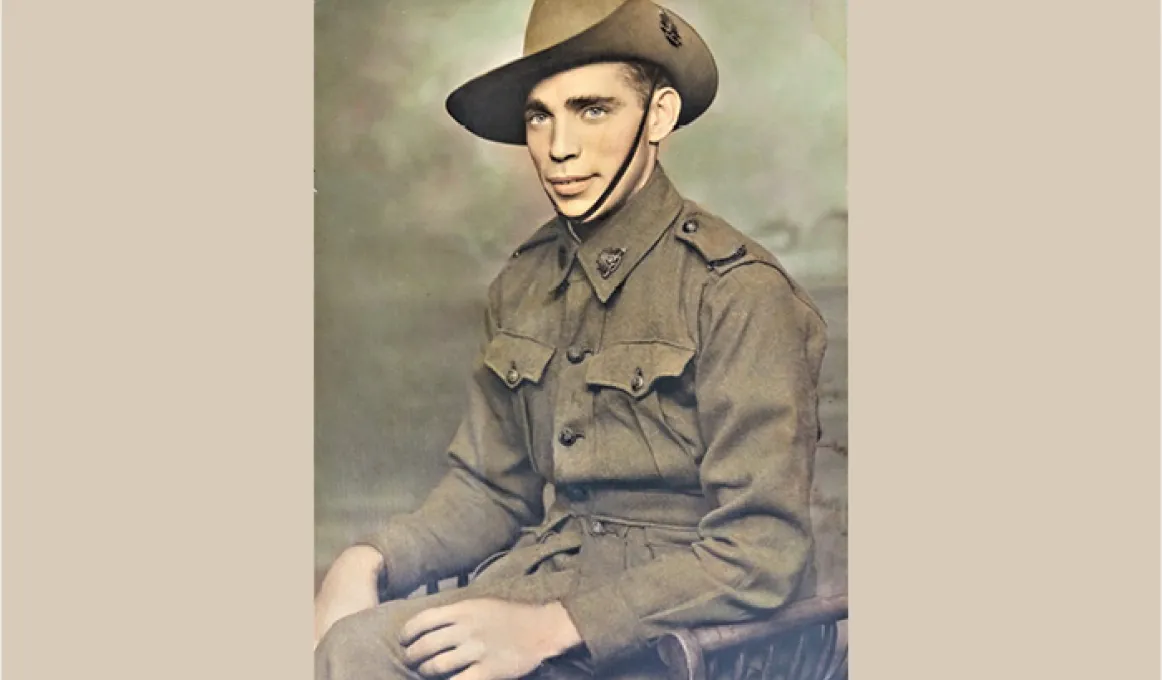11 November – Remembering Clarence Atkinson DCM

On Remembrance Day 2020 we remember the extraordinary courage displayed by Clarence Atkinson, for which he was awarded the Distinguished Conduct Medal.
Warning: this article contains brief descriptions of violence and war.
Remembrance Day is observed every year on 11 November. At 11am, Australians are invited to spend one minute in silence in memory of those who died or suffered in all wars and armed conflicts.
We also remember the service, sacrifice and bravery of those men and women who fought for Australia.
We remember bravery like that of 26-year-old Clarence Atkinson from Kogarah, NSW. He is the first known Indigenous Australian to be awarded the Distinguished Conduct Medal during the Second World War.
The following extract from Fighting for Country, co-authored by Claire Hunter and Clarence Atkinson’s great granddaughter Isabella Walker, recounts the heroic act for which Clarence received the medal.
‘It was a day that would change Clarence Atkinson’s life forever: the 27th of June 1941.
‘The then 26-year-old was serving as a private with the 2/3rd Battalion in Syria when he made a split-second decision to charge an enemy machine-gun during fighting near Damascus.
‘The men of 10 Platoon had been pinned down by enemy fire from a Hotchkiss gun for three hours while attempting to hold a defensive position on the Jebel Mazar feature. One section of 12 Platoon tried to outflank the gun, despite the number of snipers, but was held up.
‘When the man next to him was shot in the head, Atkinson leapt into action. Armed with a haversack of grenades, he dashed forward among the rocks while coming under intense enemy fire. Pushing forward, he hurled the grenades, clearing the area of enemy and capturing the Hotchkiss gun.
‘He was awarded the Distinguished Conduct Medal for his actions that day.
‘He was praised for his “amazing courage … conspicuous gallantry and devotion to duty”.
‘Five years later, he was homeless.’
Read the full story at Fighting for Country including details of his personal and family life, and the discrimination against Aboriginal and Torres Strait Islander service men and women when trying to enlist in the war effort.
*Indigenous.gov.au is grateful to Isabella Walker for permission to use the photo.
Find out more
For more information, read One Minute’s Silence.